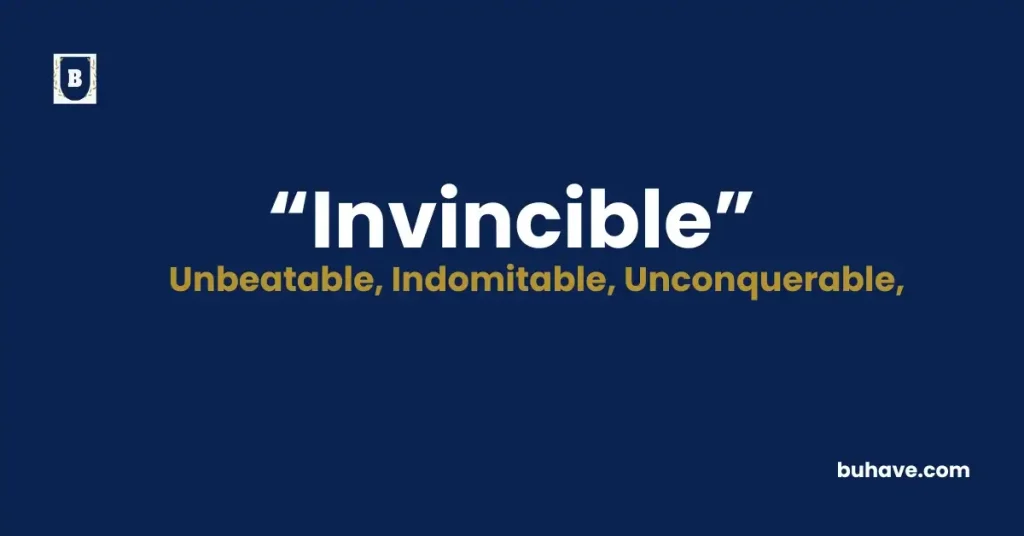The word ‘Invincible’ (Adjective) describes something or someone that cannot be defeated, overcome, or conquered. In this guide, you’ll learn the full definition, synonyms, antonyms, etymology, and real-life examples of how to use ‘Invincible’ correctly in sentences.
Invincible Explained in Depth
A complete and detailed guide to the word ‘Invincible’ including meaning, definition, examples, etymology, synonyms, and antonyms.
Meanings of Invincible
Invincible means incapable of being defeated or overcome—so powerful, strong, or resilient that no challenge or obstacle can break it. It often describes a person’s spirit, a team’s strength, or a feeling of unstoppable confidence.
Definition
Invincible refers to something or someone so strong, determined, or powerful that they cannot be defeated, subdued, or overcome. It describes a sense of absolute strength and resilience—physically, mentally, or emotionally.
Etymology
The word “invincible” comes from the Late Latin invincibilis, derived from Latin: in- (meaning “not”) + vincibilis (meaning “able to be overcome”). Its root is vincere—to conquer. So, it literally means “not able to be conquered.”
Example Sentences
- With his unwavering determination, he felt absolutely invincible during the competition.
- The superhero’s power made her appear invincible in the eyes of the city’s people.
- Although they faced challenges, their teamwork made them feel invincible.
Invincible Synonyms
- Unbeatable
- Unconquerable
- Indestructible
- Unyielding
- Unassailable
- Impregnable
- Undefeatable
- Strong
- Powerful
- Resilient
Invincible Antonyms
- Defeated
- Vulnerable
- Weak
- Susceptible
- Breakable
- Fragile
- Conquerable
- Yielding
- Beatable
- Overcome
FAQs about Invincible
Here are some frequently asked questions (FAQs) about the word “Invincible”
1. What does “invincible” actually mean?
“Invincible” means so strong, powerful, or determined that nothing can defeat or overcome it.
2. Can “invincible” describe people or things?
Yes, absolutely. It can describe a person’s spirit or strength (e.g., “He felt invincible”) or a team, force, or even an object (e.g., “an invincible shield”).
3. Is “invincible” always positive?
Mostly, yes—it conveys strength and resilience. However, sometimes it might imply arrogance if someone feels invincible in a negative way, like ignoring weaknesses or being overconfident.
4. How is “invincible” different from “indestructible”?
“Invincible” focuses on being impossible to defeat or conquer, while “indestructible” focuses on being impossible to destroy physically.
5. Can I use “invincible” in everyday conversation?
Yes, it’s quite common to use in both formal and informal settings. For example: “With my new plan, I feel invincible!”

















